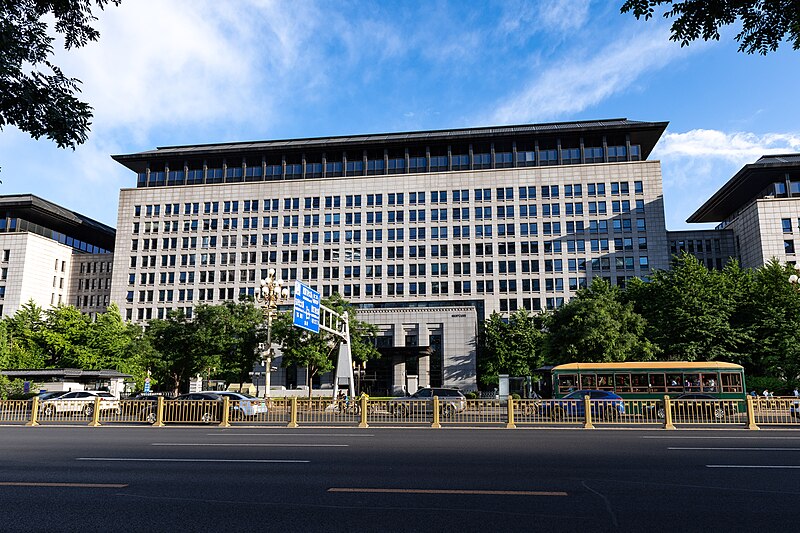
In response to European Union (EU) investigations of Chinese firms under its recently implemented Foreign Subsidies Regulation (FSR), China has responded with its own probe of the EU. On July 10, China’s Ministry of Commerce announced it was commencing an investigation into whether the FSR represents a trade barrier for Chinese companies. To date, the FSR investigations of tenders in public procurements have targeted Chinese bidders. However, the first EU investigation of a merger under the FSR involves a telecommunications firm based in the United Arab Emirates (UAE), not a Chinese firm. This post looks at the basis for the Chinese investigation and the rules that apply to it, a similar investigation against Taiwan, as well as the EU merger investigation.
The FSR, implemented in 2023, requires bidders in EU procurement and investors in mergers and acquisitions in the EU to disclose financial contributions received from non-EU governments. It authorizes the European Commission to investigate bids in EU public procurement where it believes a bidder has submitted an unduly advantageous bidder as the result of receiving foreign subsidies. It also allows the Commission to investigate the potential effect of foreign subsidies in mergers and acquisitions.
Its investigation was based on a request submitted by the China Chamber of Commerce for Import and Export of Machinery and Electronic Products (CCCME), in accordance with China’s rules for trade barrier investigations. The CCCME contended that the EU investigations hinder Chinese products and services from entering the EU market and Chinese companies from investing in Europe, as well as the market competitiveness of Chinese enterprises. In response to the CCCME’s application, the Chinese ministry said it will investigate the impact of the EU’s probes on products such as railway locomotives, solar panels, wind power and security inspection equipment.
The Chinese probe was triggered by EU investigations of Chinese bids in EU public procurement. The European Commission launched investigations of bids submitted by Chinese firms in procurement of trains in Bulgaria in February and solar panels in Romania in April. Subsequently, it closed those investigations when the Chinese bidders withdrew from the procurement. The Commission opened its first ex officio investigation under the FSR in April, focused on Chinese suppliers of wind turbines in procurements in Bulgaria, France, Greece, Romania, and Spain.
China’s State Council has adopted Rules for the Investigation of Foreign Trade Barriers that prescribe the process for the Ministry of Commerce to conduct investigations. The Rules define trade barriers to include violations of an economic treaty or agreement and restrictions on the entry of Chinese goods or service into a third country market or their competitiveness in such markets. The ministry may terminate the investigation if the targeted country promises to cancel or modify its measures, provides China with trade compensation, or complies with the treaty or agreement. The investigation should be completed within six months but may be extended for an additional three months. If the ministry finds that a trade barrier exists, it may seek bilateral consultations, invoke a multilateral dispute settlement mechanism, or take other measures. (The Rules were implemented in 2005 and updated in 2014.)
A precedent for the EU investigation is one that China undertook lagainst Taiwan last year. In April 2023, China’s commerce ministry initiated a trade barrier investigation of Taiwan's import bans on Chinese products. Taiwan imposed import bans on more than 2,000 Chinese products. In concluding the investigation in December, the ministry determined that Taiwan’s import bans constituted trade barriers as they violated both the WTO and a bilateral Economic Cooperation Framework Agreement and caused harm. Based on the results, the Customs Tariff Commission of China began applying retaliatory measures against Taiwan as of January 1, 2024. It suspended the zero-tariff treatment that had been applied to more than 500 products under the bilateral agreement.
EU Merger Investigation: In June, the European Commission opened its first in-depth merger investigation under the FSR. It is examining the acquisition by the Emirates Telecommunications Group Company PJSC (e&) of sole control of PPF Telecom Group B.V. (PPF), excluding its Czech business. e& is a state-controlled telecommunication operator based in the UAE. PPF is a European telecommunications operator. The Commission alleges that e& received subsidies in the form of an unlimited guarantee from the UAE and a loan from UAE-controlled banks directly facilitating the transaction. It must take a decision by October 15, 2024. At the end of its investigation, the Commission has three options: accept commitments proposed by the company to remedy the distortion caused by the subsidies, prohibit the merger, or issue a no-objection decision.
Jean Heilman Grier
July 18, 2024
Related Posts
EU Foreign Subsidies Cases: One Terminates, Two Start
EU Targets Chinese Firm in First Foreign Subsidies Investigation

